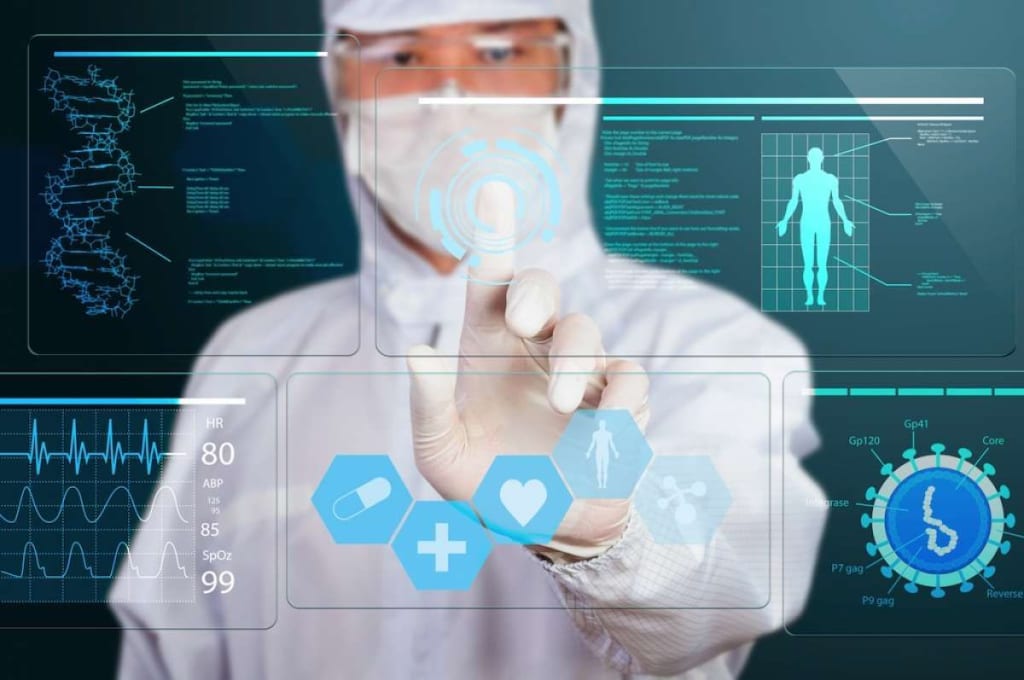"The Impact of Artificial Intelligence on Healthcare"
Healthcare

Introduction:
Artificial Intelligence (AI) has emerged as a transformative force in various industries, and healthcare is no exception. With its ability to analyze vast amounts of data, recognize patterns, and make predictions, AI has the potential to revolutionize healthcare delivery, improve patient outcomes, and enhance the efficiency of medical processes. In this article, we will explore the significant impact of artificial intelligence on healthcare and delve into its various applications within the industry.
Enhanced Diagnosis and Treatment:
One of the most promising aspects of AI in healthcare lies in its ability to assist in diagnosis and treatment. AI algorithms can analyze medical images, such as X-rays, MRIs, and CT scans, with remarkable accuracy, helping healthcare professionals detect diseases, identify abnormalities, and provide prompt treatment. Machine learning algorithms can learn from large datasets and improve their accuracy over time, reducing the chances of human error and potentially saving lives.
Moreover, AI-powered diagnostic tools can help healthcare providers by offering insights and recommendations based on patient data and medical literature. These tools can assist in diagnosing complex conditions, suggesting treatment plans, and even predicting the likelihood of disease progression. This technology empowers healthcare professionals with additional support and augments their decision-making capabilities, leading to more efficient and personalized care.
Efficient Healthcare Operations:
AI has the potential to optimize healthcare operations and streamline administrative tasks, allowing healthcare providers to focus more on patient care. Natural Language Processing (NLP) enables AI systems to process and understand human language, facilitating tasks such as speech recognition and transcription of medical records. This automation not only saves time but also reduces the burden of paperwork, enabling healthcare professionals to spend more time with patients.
Additionally, AI-powered systems can analyze large volumes of medical data, including electronic health records and clinical notes, to identify patterns, trends, and potential risks. This proactive approach can assist in early detection of diseases, prompt interventions, and preventive measures, ultimately leading to improved patient outcomes and reduced healthcare costs.
Personalized Medicine:
Artificial intelligence plays a vital role in advancing the field of personalized medicine. By analyzing vast amounts of patient data, including genetic information, medical history, and lifestyle factors, AI algorithms can identify individualized treatment approaches. This enables healthcare providers to deliver precise and tailored interventions, optimizing patient outcomes and minimizing adverse effects.
AI can also assist in predicting patient responses to specific medications or therapies, helping healthcare professionals choose the most effective treatment options for each individual. This personalized approach holds immense potential for chronic disease management, oncology, and precision medicine, revolutionizing the way healthcare is delivered.
Ethical Considerations and Challenges:
While the potential of AI in healthcare is vast, it is essential to address the ethical considerations and challenges associated with its implementation. Privacy and security of patient data are critical concerns, and robust safeguards must be in place to protect sensitive medical information. Transparency and explainability of AI algorithms are also vital to ensure healthcare professionals and patients can trust the decisions made by these systems.
Moreover, there is a need to address the potential bias in AI algorithms, as they rely on historical data that may reflect existing inequalities in healthcare. Efforts must be made to ensure fairness and inclusivity in the development and deployment of AI technologies, so that the benefits can be equitably distributed across diverse populations.
Conclusion:
Artificial intelligence is transforming healthcare by enhancing diagnosis and treatment, optimizing healthcare operations, and enabling personalized medicine. The integration of AI technologies has the potential to revolutionize healthcare delivery, improve patient outcomes, and reduce healthcare costs. However, ethical considerations and challenges must be addressed to ensure responsible and equitable use of AI in healthcare.
As AI continues to advance, its collaboration with healthcare professionals will become increasingly important. By combining human expertise with the power of artificial intelligence, we can unlock new possibilities and create a future where healthcare is more.
About the Creator
Moe_ Abdelhaq
Make a better world!
Enjoyed the story? Support the Creator.
Subscribe for free to receive all their stories in your feed. You could also pledge your support or give them a one-off tip, letting them know you appreciate their work.






Comments
There are no comments for this story
Be the first to respond and start the conversation.